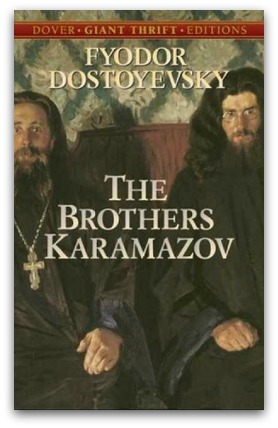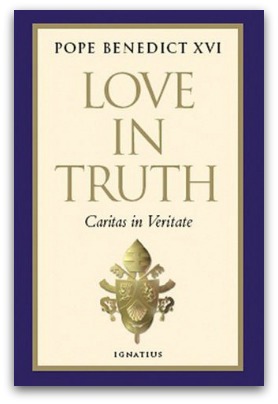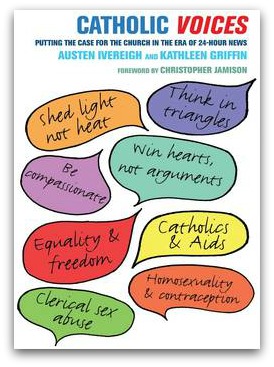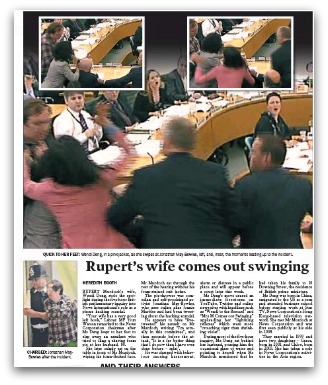Keywords: Public Intellectual
There are more than 200 results, only the first 200 are displayed here.
-

ARTS AND CULTURE
- Ellena Savage
- 03 August 2012
6 Comments
In Australia, land of the cultural cringe, the social elite mainly consume middle- and low-brow culture: mainstream cinema, best-sellers, and Bruce Springsteen, for example. Swan's admiration of Springsteen is positive in its belief in the legitimacy of mainstream taste, which is dictated more democratically than highbrow taste.
READ MORE 
-

MEDIA
- Max Atkinson
- 12 July 2012
6 Comments
Any discussion of the morality of torture must distinguish two kinds of justification. The first is concerned with cases so exotic they have nothing to do with the ordinary affairs of mankind, such as the nuclear bomb ticking away in a New York basement. A real-life justification must provide a rationale for a wide range of common garden cases.
READ MORE 
-

INTERNATIONAL
- Moira Byrne Garton
- 29 June 2012
6 Comments
Earlier this month a Canadian Supreme Court effectively legalised physician-assisted euthanasia. While there is a general perception that those opposed to euthanasia do so on religious grounds, many people with disabilities oppose euthanasia because they believe it is bad policy that denies their right to live.
READ MORE 
-

MEDIA
'I still believe in global warming. Do you?' These words graced a Chicaco billboard above an image of 'Unabomber' Ted Kaczynski. It was removed, not because it broke any law, but because it was deemed to have 'gone too far'. In a society that supports free speech, who decides how far is too far?'
READ MORE 
-

EDUCATION
- Dilan Thampapillai
- 24 May 2012
12 Comments
The lawsuit launched by a student against her former high school for failing to get her into her preferred university reveals how far we have drifted from notions of student responsibility. Teachers do need to be supportive, but they are not the single most important determinant in student outcomes.
READ MORE 
-

RELIGION
- Frank Brennan
- 10 May 2012
61 Comments
The bishops intend a campaign of civil disobedience against aspects of the Obama Administration's health care plan. Many have been critical of this law on the ground that it might contribute to more abortions. The toxicity of the atmosphere should make us wary of adopting a similar campaign here.
READ MORE 
-

RELIGION
- Andrew Hamilton
- 04 May 2012
27 Comments
In his reflections on society and aspects of human life, Pope Benedict privileges charity. If any planning or struggle for a just society is to be effective it will depend on people's good will and generosity in the implementation. The Pope also says 'yes' to social justice. But his 'yes' is normally a 'yes, but ...'.
READ MORE 
-

RELIGION
- Frank Brennan
- 19 March 2012
Text from Fr Frank Brennan SJ's Lenten presentation 'Justice, the Church and the Ignatian tradition' at St Ignatius Parish, Norwood, 13 March 2012 and St Michael's, Clare, 14 March 2012.
READ MORE
-

AUSTRALIA
- David Cappo
- 06 March 2012
21 Comments
The Protecting Victoria's Vulnerable Children Inquiry has set a new benchmark. A particular challenge to churches is the recommendation regarding mandatory reporting for clergy and church personnel. Any equivocation on this would be viewed with disdain by the community.
READ MORE 
-

MEDIA
- Geoff Davies
- 07 February 2012
39 Comments
The misreporting of the Australia Day 'riot' is but one example of a growing nexus of hysteria, racism and ignorance in Australian media. It is time to rein in the increasing distortion of our social and political conversations, and require responsibility as well as freedom of speech.
READ MORE 
-

RELIGION
- Andrew Hamilton
- 19 January 2012
8 Comments
The visit of Pope Benedict XVI to Great Britain last year prompted an interesting experiment. The Church asked for lay volunteers to deal with media enquiries. At first glance this could be construed as an exercise in corporate spin with a focus on persuasion and not on truth.
READ MORE 
-

MEDIA
- Catherine Marshall
- 11 January 2012
2 Comments
The public was quick to claim ignorance and condemn the theft of private information by News of the World. But ignorance is no longer an excuse, especially in these post-Princess Diana years where the role of the paparazzi, traitorous friends and dodgy journalists is well-known. Published 21 July 2011
READ MORE 